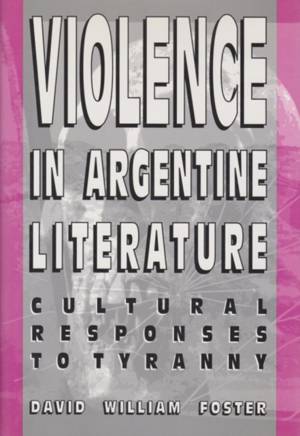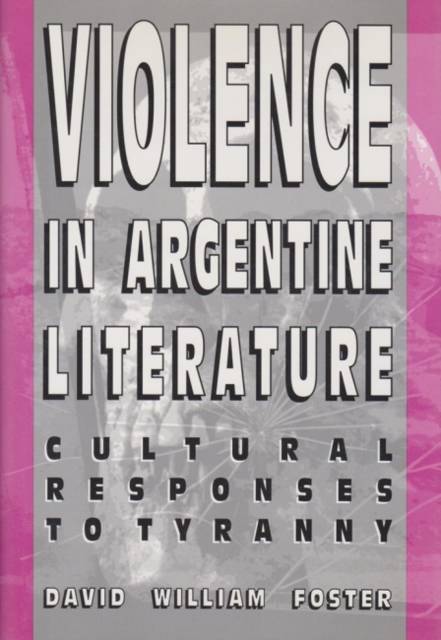
- Retrait gratuit dans votre magasin Club
- 7.000.000 titres dans notre catalogue
- Payer en toute sécurité
- Toujours un magasin près de chez vous
- Retrait gratuit dans votre magasin Club
- 7.000.000 titres dans notre catalogue
- Payer en toute sécurité
- Toujours un magasin près de chez vous
Violence in Argentine Literature
Cultural Responses to Tyranny
David William FosterDescription
An analysis of selected texts that are viewed as cultural responses to military tyranny, and especially to the military dictatorship in Argentina between 1976 and 1983, this important work studies the process of institutional redemocratization. Basing his discussion on the principle that a literary work constitutes a "rewriting" of the sociohistorical text, Foster examines a range of essays and novels for the ways in which they structure an interpretation of sociopolitical events.
Of particular concern is the ideological framing of the literary work and the semiotic complications that arise in the rewriting of a complex and often elusive historical past. Foster pays special attention to the contributions of feminist writing and discusses two dramatic texts by women. There are also references to other dimensions of subalternity, especially within the framework of the military's tight ideological array of "enemies of the fatherland" whose cultural production suffered repression.
Foster discusses the works of such authors as Enrique Medina, Marta Lynch, Griselda Gambaro, Ricardo Piglia, and Alejandra Pizarnik, among others. By focusing on major literary texts produced during a time of censorship and other forms of repression, Foster provides a deeper understanding of Argentine culture. Scholars and students of Latin American literature in general, and humanists and social scientists specializing in Argentina in particular, will welcome this insightful new contribution.
Spécifications
Parties prenantes
- Auteur(s) :
- Editeur:
Contenu
- Nombre de pages :
- 224
- Langue:
- Anglais
Caractéristiques
- EAN:
- 9780826209917
- Date de parution :
- 01-05-95
- Format:
- Livre relié
- Format numérique:
- Genaaid
- Dimensions :
- 152 mm x 229 mm
- Poids :
- 552 g







